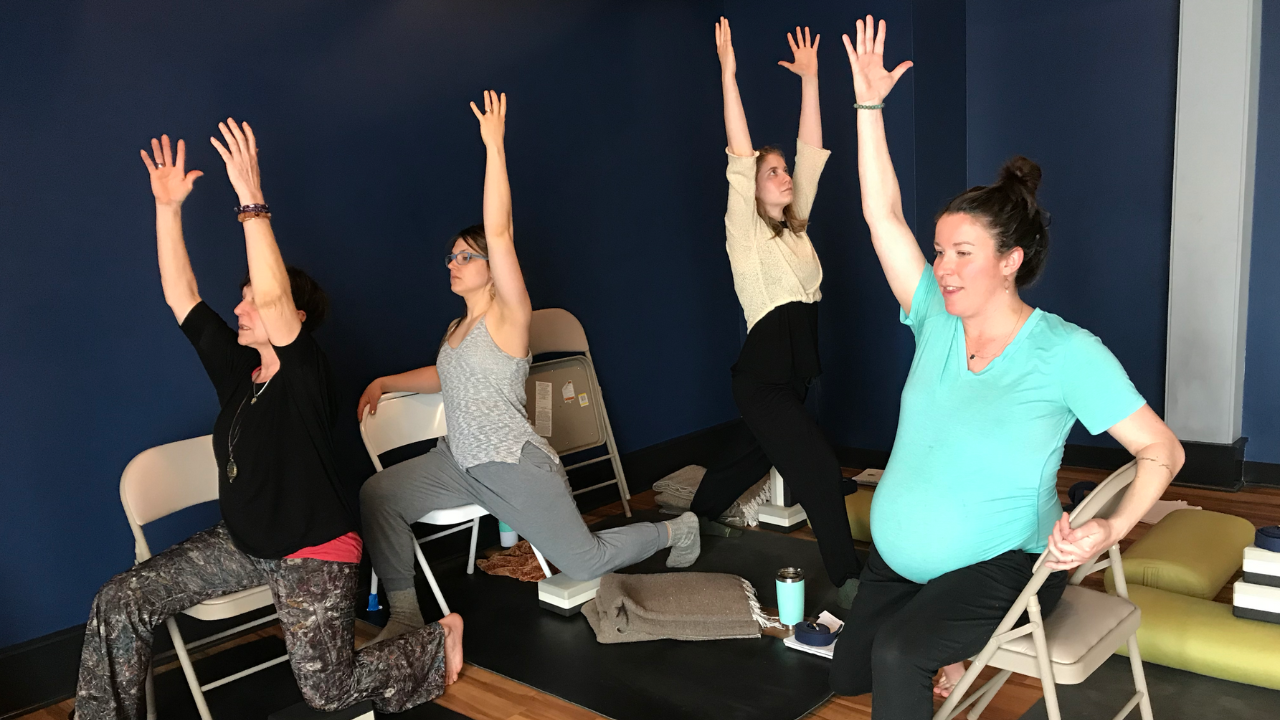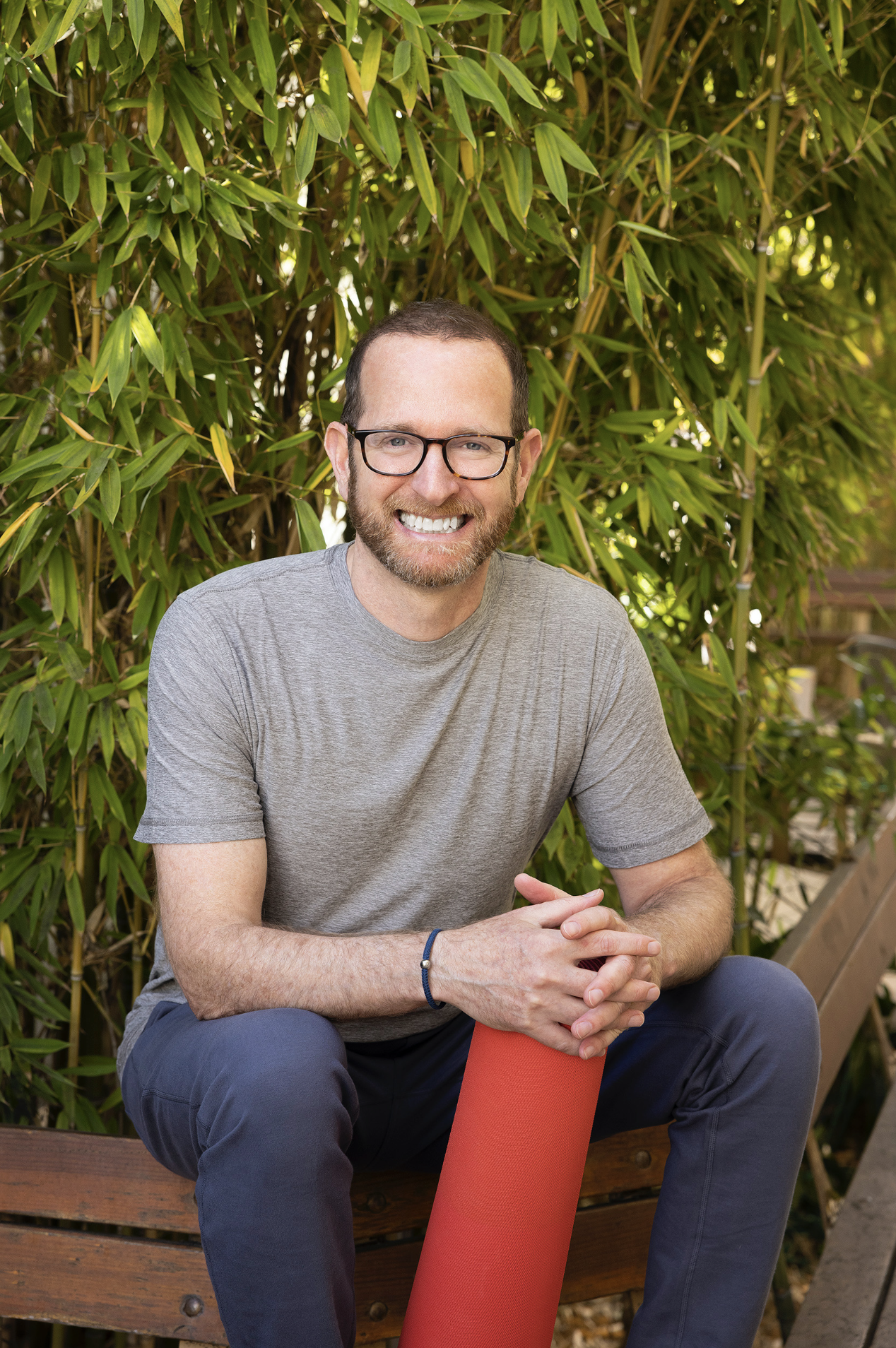Do you use possessive pronouns when teaching yoga?

by Jivana Heyman
Our primary tool when teaching yoga is our language, and the words we choose are essential in sharing the heart of the teachings. Many of us have been trained to avoid using possessive pronouns when teaching. We've been taught to say, "try extending the arm." This seems like an effort to have us transcend our attachment to our body.
But, the fact is, most of us need to focus on inhabiting our body. We benefit from embodiment practices that help us gain agency and a sense of control in a world that tells us our body isn't really ours. Using possessive pronouns when teaching can support this message. We can say, "Try extending your arm," or, "Focus on your breath." These are subtle cues that can have a profound impact.
Check out Jivana's video about using possessive pronouns when teaching yoga.
Interested in learning more?
You only have a few more days to join the Accessible Yoga Training Online!
Registration closes Sunday night! ⤵️
Complete the Accessible Yoga Training online!
Learn to design yoga classes where all students can practice together regardless of age, size, ability, or experience level
In this training, you will:
-
Understand the benefits of an accessible yoga practice including: enhancing muscular strength, balance, flexibility, improving physiological functions, reducing stress, anxiety, chronic pain and promoting overall health and well-being
-
Determine safe and appropriate variations of common asanas for a range of physical ability (chair, mat/bed, standing)
-
Learn specific asanas for flexibility, strengthening and balance training to maintain or improve health and independence
-
Understand the purpose and implementation of props to make yoga accessible to all abilities
-
Acquire knowledge of common medical conditions and the benefits and concerns for implementation of a yoga practice
-
Learn to create integrated Accessible Yoga classes where students of different abilities can practice together
-
Explore the many ways that yoga can be adapted to suit students with disabilities, physical challenges, seniors, people with larger bodies, and more
- Much, much more!
Learn More & Register Now
Accessible Yoga Training Online
38-hour certification
January 18 - February 3, 2023
Mondays, Wednesdays & Fridays
12pm-3pm Pacific (Los Angeles) | 3pm-6pm Eastern (New York)
8pm-11pm London, UK
Partial scholarship applications due September 4!
Pricing tiers & payment plans available
Can't attend live? Receive the replays for 1 year
Learn More & Register Now
About Jivana Heyman

Jivana Heyman, C-IAYT, E-RYT500, is the founder and director of the Accessible Yoga Association, an international non-profit organization dedicated to increasing access to the yoga teachings. He’s the author of Accessible Yoga: Poses and Practices for Every Body (Shambhala Publications), as well as the forthcoming book, Yoga Revolution: Building a Practice of Courage & Compassion (Shambhala Publications, Nov. 2021).
Jivana has specialized in teaching yoga to people with disabilities with an emphasis on community building and social engagement. Out of this work, the nonprofit Accessible Yoga Association was created to support education, training, and advocacy with the mission of shifting the public perception of yoga. Accessible Yoga offers Conferences, Community Forums, a Podcast, and a popular Ambassador program.
Jivana coined the phrase, “Accessible Yoga,” over ten years ago, and it has now become the standard appellation for a large cross section of the immense yoga world. He brought the Accessible Yoga community together for the first time in 2015 for the Accessible Yoga Conference, which has gone on to become a focal point for this movement.
Jivana is also the creator of the Accessible Yoga Training and the co-founder of the online Accessible Yoga School with Amber Karnes, which is a platform for continued education for yoga teachers in the field of equity and accessibility. They also created the Accessible Yoga Podcast in 2020.
Over the past 25 years, Jivana has led countless yoga teacher training programs around the world, and dedicates his time to supporting yoga teachers who are working to serve communities that are under-represented in traditional yoga spaces.

